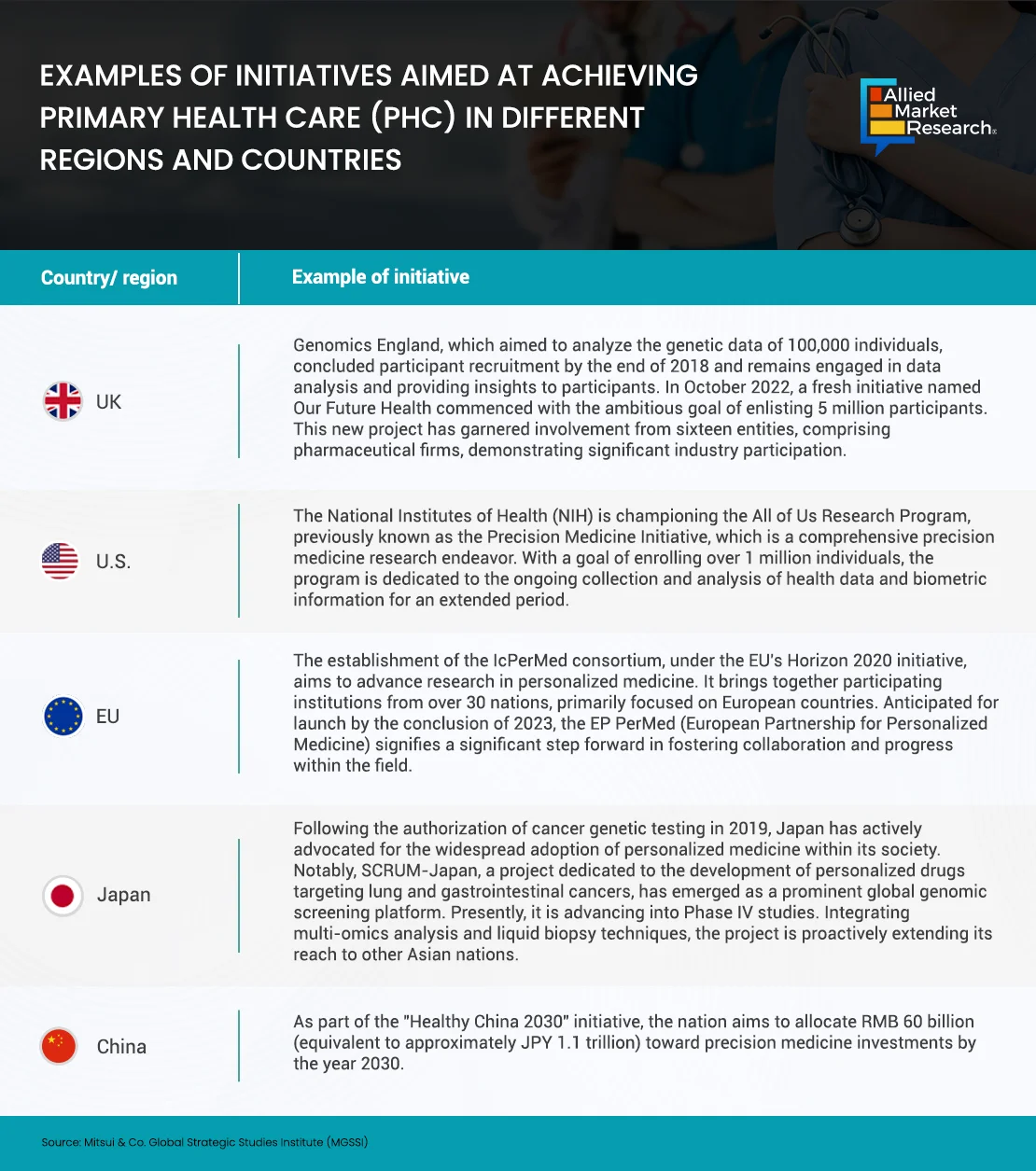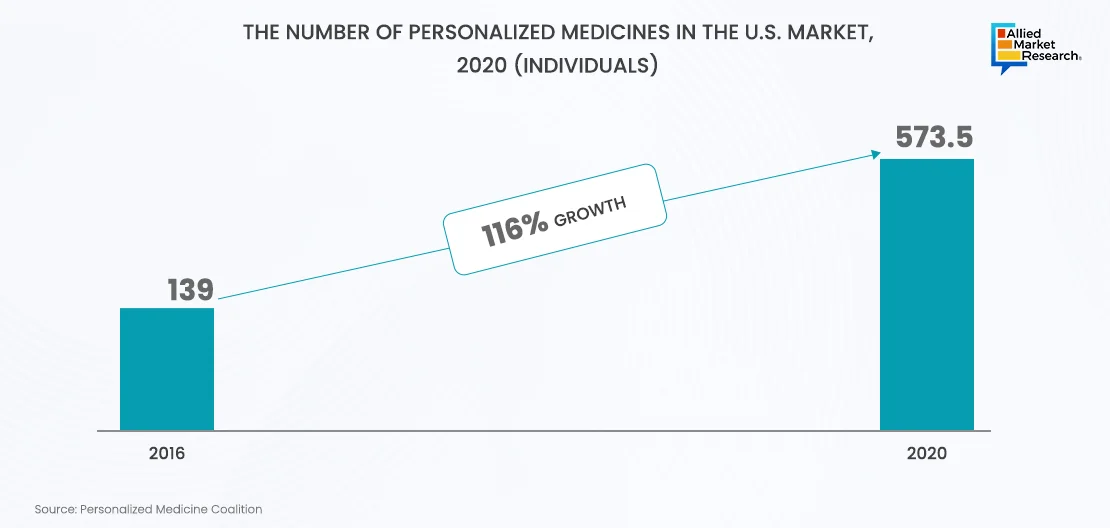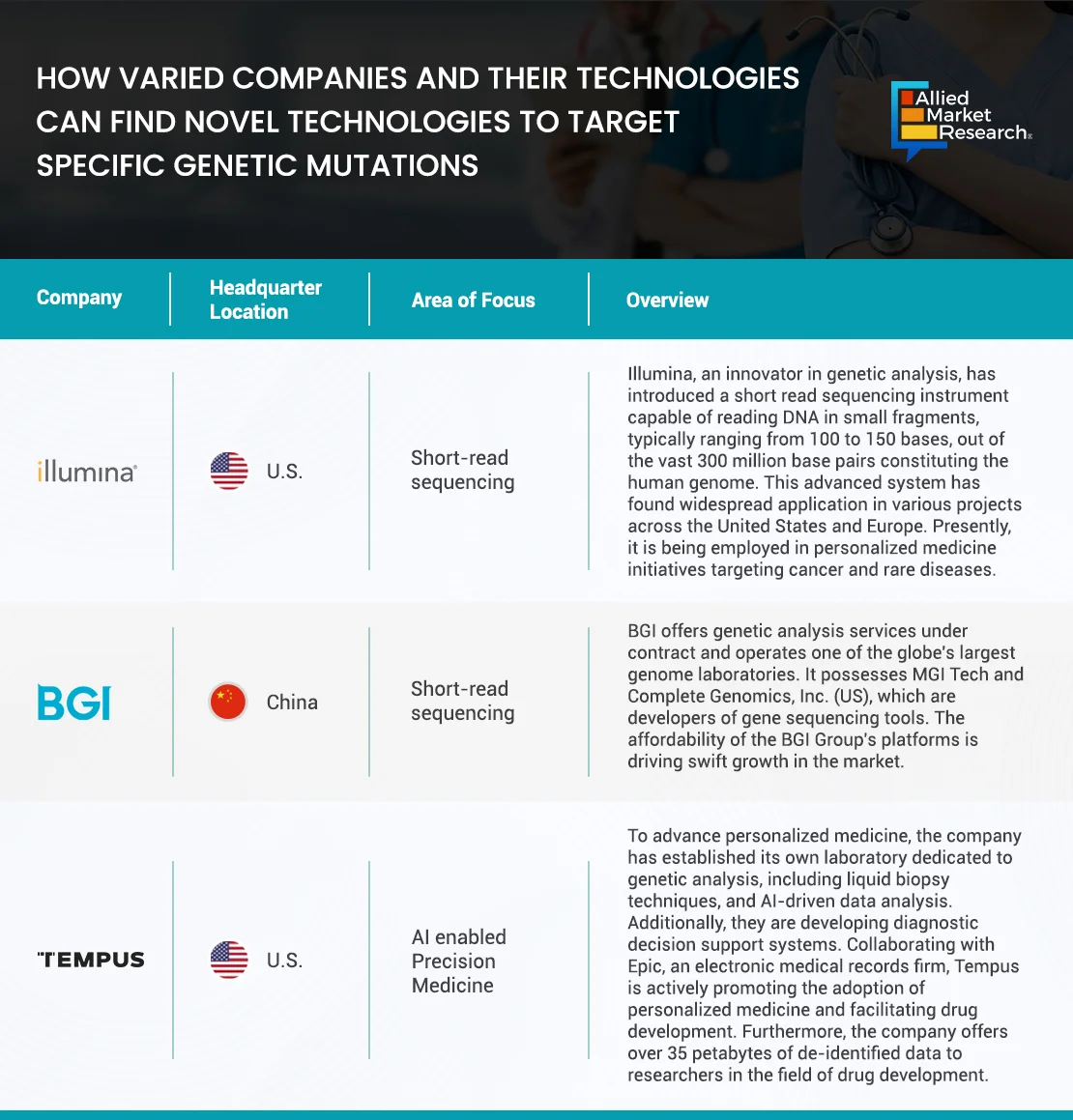Table Of Contents

Roshan Deshmukh

Koyel Ghosh
Personalized Medicines: From General Approaches to Precision Targeting of Genetic Mutations

Personalized medicines are the advanced diagnostic and treatment approach which is an exception for the term ‘one-size-fits-all'. Personalized medicines work by considering various genetic as well as environmental factors of an Individual. This technique offers a big opportunity to develop an appropriate and effective treatment plan for patients. These medicines mainly focus on developing targeted therapies specific to the individual patient to increase the success rate of the treatment adopted. It also reduces the chances of adverse drug reactions and minimizes the use of invasive diagnosis and treatment procedures. This leads to an increase in adoption of personalized medicines by healthcare providers and patients worldwide.
There are two types of the medicine, which can be summarized as:

By Product
Personalized Medicine Therapeutics
- Pharmaceuticals
- Genomic Medicines
- Medical Devices
Personalized Medicine Diagnostics
Current Status in Each Country/Region
Efforts to establish Primary Healthcare (PHC) initiatives are evident across various countries and regions, with a focus on extensive data collection and analysis of genomic, omics, medical, and health-related information. Notably, the UK's "Our Future Health" project, launched in October 2022, illustrates this trend. In the last few years, PHC has expanded its scope beyond cancer and rare diseases to encompass a broader spectrum, including lifestyle-related ailments. This shift has garnered attention for its potential in preventive measures, early disease detection, and prognosis. Furthermore, the adoption of international data standards, such as the OMOP Common Data Model, is fostering cross-border collaboration and advancing research in personalized medicine.
Despite challenges, like the limited utilization of personalized drugs for cancer patients in Japan based on genomic profiling tests, the country's research and development landscape is steadily expanding. Initiatives like Japan's collaboration with other Asian nations under the SCRUM-Japan project, led by the National Cancer Center Hospital East, highlight this progress. Moreover, the approval of the Japanese government's Action Plan for "Whole Genome Analysis 2022" in September 2022 reflects ongoing efforts to integrate personalized medicine into routine healthcare practices, signaling positive strides in addressing associated challenges.
Understanding the Challenges of Personalized Medicine
According to the Personalized Medicine Coalition (PMC), the recent acceleration in this field is anticipated to lead to significant enhancements in both the quality and cost-effectiveness of medical care. Nonetheless, the authors have highlighted that along with this progress come new challenges, including regulatory oversight, payer coverage, reimbursement issues, and the clinical adoption of transformative technologies.
To ensure that the maximum number of patients can benefit, healthcare systems are now faced with the task of intensifying efforts to address these obstacles. In recent years, cancer treatment has focused more on understanding the genetic causes of the disease rather than just where the tumor originates. This shift is exemplified by the advancement of multi-cohort programs such as the National Cancer Institute's NCI-MATCH trial, which has started to demonstrate the value of such trials for refractory cancer patients with rare genomic tumor alterations not typically explored in traditional drug trials.

Furthermore, the field has seen the introduction of tumor-agnostic drug approvals, where therapy is indicated based on the presence of specific cancer biomarkers regardless of the tumor's location in the body. Notable examples include the approval of pembrolizumab (Merck's Keytruda) in 2017 for advanced solid tumors exhibiting microsatellite instability-high (MSI-H) or mismatch repair deficiency (dMMR), followed by subsequent approvals based on tumor mutational burden, reflecting the evolving landscape of cancer treatment.
Promoting Personalized Medicine Despite Challenges and Opportunities
Tough economic times have caused many biotech and diagnostic firms, vital for personalized medicine, to undergo a period of contraction. Even big pharma companies worldwide are feeling the pinch from high research costs and changes after the pandemic. Healthcare providers are grappling with their own challenges in delivering cost-effective care, leading to cost-cutting measures and a deceleration in the adoption of novel technologies and therapies.
However, recent scientific advancements present unparalleled opportunities to tailor prevention and treatment approaches to the appropriate patients at the optimal times. A swift pace of advancement in science and medicine is heralding a new era of precision healthcare, promising improved patient outcomes and heightened efficiency within healthcare systems.

According to the sixth edition of the organization's Personalized Medicine Report, the number of individualized medicines available on the US market surged from 132 in 2016 to 286 in 2020, marking a 116 percent increase and the most substantial four-year upsurge since data tracking began in 2008. By comparison, precision therapies grew about 62 percent between 2012 and 2016.
| Personalized Medicine Market | 2016 | 2022 | Growth (2016-2020)% |
| Individuals | 139 | 573.5 | 116% |
Source: Personalized Medicine Coalition
As per the coalition's findings, the current market boasts over 75,000 genetic tests available for commercial use. In the field of oncology, personalized medicine has been crucial, and the Personalized Medicine Coalition (PMC) observed a notable rise in using biomarkers in clinical trials. In 2000, only 18 percent of clinical trials incorporated biomarkers, whereas today, that figure has surged to 61 percent.
The PMC defines personalized medicine, also referred to as precision or individualized medicine, as the utilization of diagnostic tests to determine the most effective medical treatments for each patient. This approach is coupled with the application of medical interventions aimed at modifying molecular mechanisms, often genetic, that either cause disease or influence a patient's response to specific treatments.
While the coalition anticipates that the recent acceleration in this field will result in notable enhancements in both the quality and cost-effectiveness of medical care, it also highlights the emergence of new challenges. These challenges encompass regulatory oversight, payer coverage and reimbursement issues, and the clinical adoption of these groundbreaking technologies.
Concluding Section
The personalized medicine industry is experiencing significant growth globally, driven by factors such as the rise in chronic diseases, increased awareness about precision medicines, and advancements in research and development activities. This approach to healthcare, which tailors treatments to individual genetic and environmental factors, offers promising opportunities for developing more effective treatment plans and reducing adverse reactions. Recent developments, such as Illumina's unveiling of PrimateAI-3D, an AI algorithm capable of predicting disease-causing genetic mutations with unprecedented accuracy, signify a leap forward in this category. Personalized medicine, fueled by continuous scientific advancements and a rise in tailored therapies, is expected to transform healthcare. This shift promises improved patient results and greater effectiveness in global health systems.
Allied Market Research recognizes the transformative potential of personalized medicine within the healthcare landscape. We aim to equip vendors with comprehensive insights to explore this shift effectively. By understanding the nuances of this particular type, vendors can help them capitalize on emerging opportunities and enhance their offerings. Businesses must cover ways to integrate personalized medicine into their practices, fostering innovation, and staying ahead in an evolving market. Through collaborative efforts and a proactive approach, vendors can not only adapt to the changing healthcare landscape but also contribute to improved patient outcomes and the overall advancement of personalized medicine. At AMR, we are committed to providing the knowledge and resources necessary for vendors to thrive in this dynamic and promising era of healthcare innovation. For more details, contact our esteemed professionals today

